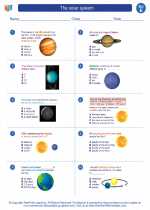Transport
Transport, in the context of science, refers to the movement of substances from one place to another within an organism. This movement is essential for the survival and proper functioning of living organisms.
Types of Transport in Living Organisms
There are several types of transport mechanisms in living organisms, including:
- 1. Passive Transport: This type of transport does not require energy expenditure by the cell and includes processes such as diffusion and osmosis.
- 2. Active Transport: Active transport requires the cell to expend energy, usually in the form of ATP, to move substances against their concentration gradient.
- 3. Bulk Transport: This mechanism involves the transport of large molecules or clumps of material into or out of the cell through processes such as endocytosis and exocytosis.
Transport in Plants
Plants have specialized transport systems for the movement of water, nutrients, and other essential substances. The two main transport systems in plants are:
- 1. Xylem: This tissue is responsible for transporting water and dissolved minerals from the roots to the rest of the plant.
- 2. Phloem: Phloem is involved in the transport of sugars produced during photosynthesis from the leaves to other parts of the plant.
Transport in Animals
Animals also have specialized transport systems to ensure the distribution of essential substances throughout their bodies. The cardiovascular system, which includes the heart, blood vessels, and blood, is responsible for the transport of nutrients, gases, and waste products in animals.
Study Guide for Transport
To understand the concept of transport in living organisms, it is important to focus on the following key points:
- Identify the different types of transport mechanisms in living organisms.
- Describe the role of transport systems in plants, such as xylem and phloem.
- Explain the function of the cardiovascular system in animals for the transport of essential substances.
- Discuss the importance of passive and active transport in maintaining cellular functions.
By mastering these concepts, you will have a solid understanding of the mechanisms and significance of transport in living organisms.
[Transport] Related Worksheets and Study Guides:
.◂Science Worksheets and Study Guides Fifth Grade. The solar system

 Worksheet/Answer key
Worksheet/Answer key
 Worksheet/Answer key
Worksheet/Answer key
 Worksheet/Answer key
Worksheet/Answer key
 Vocabulary/Answer key
Vocabulary/Answer key
 Vocabulary/Answer key
Vocabulary/Answer key
 Vocabulary/Answer key
Vocabulary/Answer key
